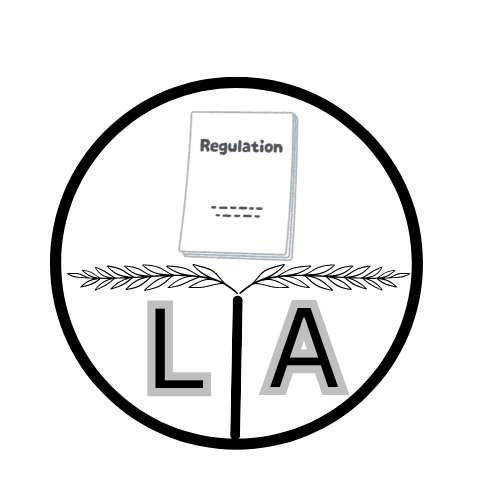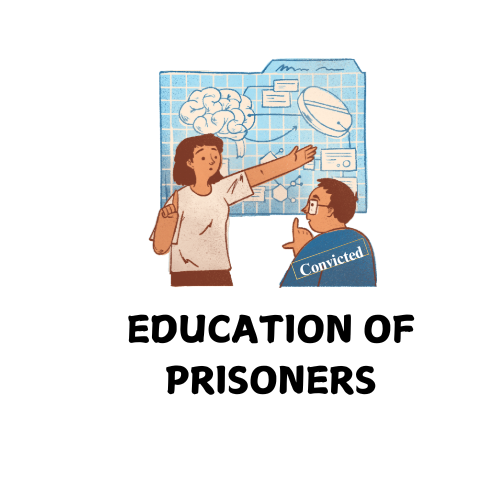Education and Training of Prisoners
Education and Training of Prisoners
What is the impact of education on prisoners?
Education and Training of Prisoners
Education and Training of Prisoners
Welcome to Law Adhoc Tutorials !
These notes are in easy language and easy to remember.
Law Adhoc Tutorials is an education platform. It helps law students get high quality notes to make their study easier. Law Adhoc Tutorials provides full and completes notes for free for each subjects of law.
Education and Training of Prisoners
Education and Training of Prisoners
Education and Training of Prisoners
Education and Training of Prisoners
Education is vital for prisoner development, transforming their perspectives and reducing recidivism. This benefits society by lowering crime rates and reducing costs on the criminal justice system.
Education promotes mental and physical growth, shaping inmates’ knowledge and behavior for better reintegration into society.
The monotony of prison life can be alleviated through education, providing joy and purpose. Without educational programs, managing offenders becomes costly and ineffective.
Objective for Education of Prisoners
A comprehensive educational program in prison should focus on:
(i) Illiteracy reduction: Helping illiterate inmates achieve basic literacy skills.
(ii) Advancing education: Offering opportunities for literate inmates to further their education.
(iii) Civic understanding: Fostering an understanding of civic duties and responsibilities.
(iv) Positive societal attitudes: Improving inmates’ perspectives towards society and encouraging responsible citizenship.
(v) Social and ethical development: Cultivating good social and ethical habits for successful reintegration into the community.
Educational Policy for Inmates
Prison staff should classify new inmates based on their educational background, ability to study further, social background, and vocational training.
The goals for the Education of Prisoners are:
(i) To teach every illiterate prisoner to read and write.
(ii) To help prisoners improve their educational qualifications.
If a prisoner was studying before imprisonment and wants to continue, they should receive support, including getting books and materials from outside or using their own money to buy them.
A prisoner should be encouraged and provided with facilities for enable him to appear in competitive examinations conducted by various government departments.
Classification of Prisoners
Prisoners should be classified on the basis of their academic/educational qualification and their aptitude for further learning at the time of admission in the prison. It should be made compulsory for each prisoner to sit in the educational classes, arranged as per their qualification, for at least two hours in the day, preferably in
the morning hours.
Nature of an Educational Programme
The educational programme should consist of:
(i) Physical and health education
(ii) Academic education
(iii) Social education
(iv) Vocational education
(v) Moral and spiritual education
(vi) Cultural education
Compulsory Education of Prisoners
All adult prisoners must engage in compulsory education, with a specific timeline set for illiterate inmates to be able to write their names.
Educated prisoners should be utilized to support educational programs, alongside formally employed teachers and resources from NGOs.
State of Maharashtra v. Prabhakar Pandurang Sangzgiri, AIR 1966 SC 424
The Supreme Court of India held that prisoners do not lose all their fundamental rights upon incarceration, except those that are inherently inconsistent with imprisonment. The Court recognized the right to education as an extension of the right to life and personal liberty under Article 21 of the Indian Constitution. It emphasized that education plays a crucial role in the rehabilitation and reformation of prisoners, helping them reintegrate into society upon release.
The Court directed the prison authorities to allow Sangzgiri to appear for his examination and make necessary arrangements to facilitate his educational pursuits. The judgment underscored the importance of treating prisoners with dignity and providing them with opportunities for self-improvement.
Education and Training of Prisoners
Vocational Training for Prisoners notes : https://lawadhoctutorials.com/vocational-training-for-prisoners-in-india/
Rights and Duties of Prisoners notes :- https://lawadhoctutorials.com/rights-and-duties-of-prisoners/
Model Prison Act Notes : https://lawadhoctutorials.com/model-prisons-act-2003/
All subjects law notes : https://lawadhoctutorials.com/subject/
All subjects law notes in pdf : https://lawadhoctutorials.com/notespdf/
Law of torts lecture link on YouTube: https://youtu.be/fRx-i5fk3jo?si=QPnyduoa3IeZoI5W
Free and easy to access law notes. The law notes are available for all law subjects. Please check the below-mentioned list for complete law notes.
Education and Training of Prisoners
Click on the specific subject to view its notes.


